
The world of chemistry can open the door to careers in various industries with exciting opportunities in both practical and research-based fields. Lincoln Memorial University has three undergraduate pathways available to students seeking a chemistry degree. Explore the critical components of chemistry: organic, inorganic, analytical, physical, and biochemistry with the Chemistry track. Or, if education is your calling, the Secondary Teacher Education Licensure program will prepare you to serve your community as a middle school or high school teacher. But suppose you're already looking ahead to professional and graduate programs. In that case, the Pre-Med rack is built for you. Pre-medical track students master vital concepts across chemistry and the life sciences, positioning them to excel in masters and doctorate programs in the health sciences and beyond.
This track students with a strong foundation in chemical principles, laboratory techniques, and scientific reasoning, preparing them for a wide range of scientific and technical careers. This track attracts students who enjoy problem-solving, experimentation, and exploring the chemical basis of the scientific world. Graduates pursue careers in research, pharmaceuticals, and chemical industry roles, or continue their education in graduate, medical, or professional schools.
Check out the 4-year plan to see what your time here will look like.
This track provides a strong foundation in chemical and physical sciences for students planning to pursue advanced study in health-related fields. It attracts analytical, detail-oriented individuals who are curious about the molecular basis of health and disease. The program emphasizes critical thinking, laboratory skills, and scientific reasoning, preparing graduates for success in professional programs such as medicine, dentistry, pharmacy, or biomedical research.
Check out the 4-year plan to see what your time here will look like.
This track prepares students to become knowledgeable and effective chemistry teachers by combining in-depth coursework in chemistry with professional education training and classroom experience. This track is ideal for students who are passionate about science and enjoy mentoring and communicating complex ideas to others. Graduates typically pursue licensure and careers as secondary school chemistry teachers, with some continuing into graduate studies in education or science.
Check out the 4-year plan to see what your time here will look like.
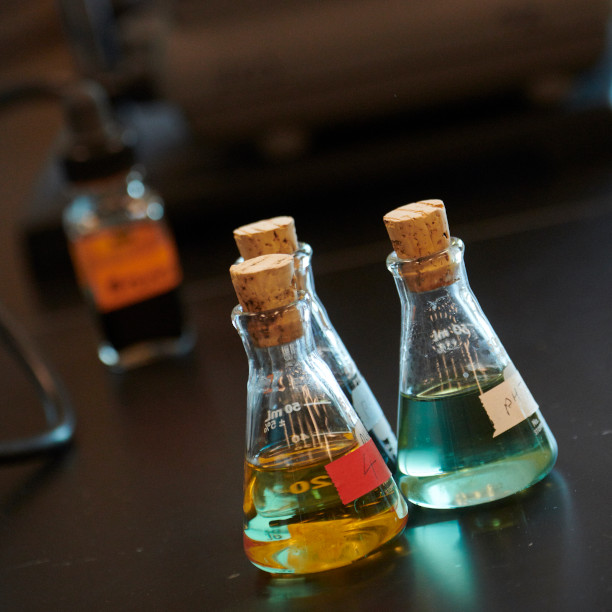
Students partake in laboratory courses that focus on skill sets ranging from general to topic specific. Students are exposed to various various general laboratory skills such as · titration, distillation, to more specilized skills such as chromatography, spectroscopy (e.g., IR, NMR), and computer-based skills such as Esri ArcPro, ArcMap, R/RStudio, and PAST statistical software.
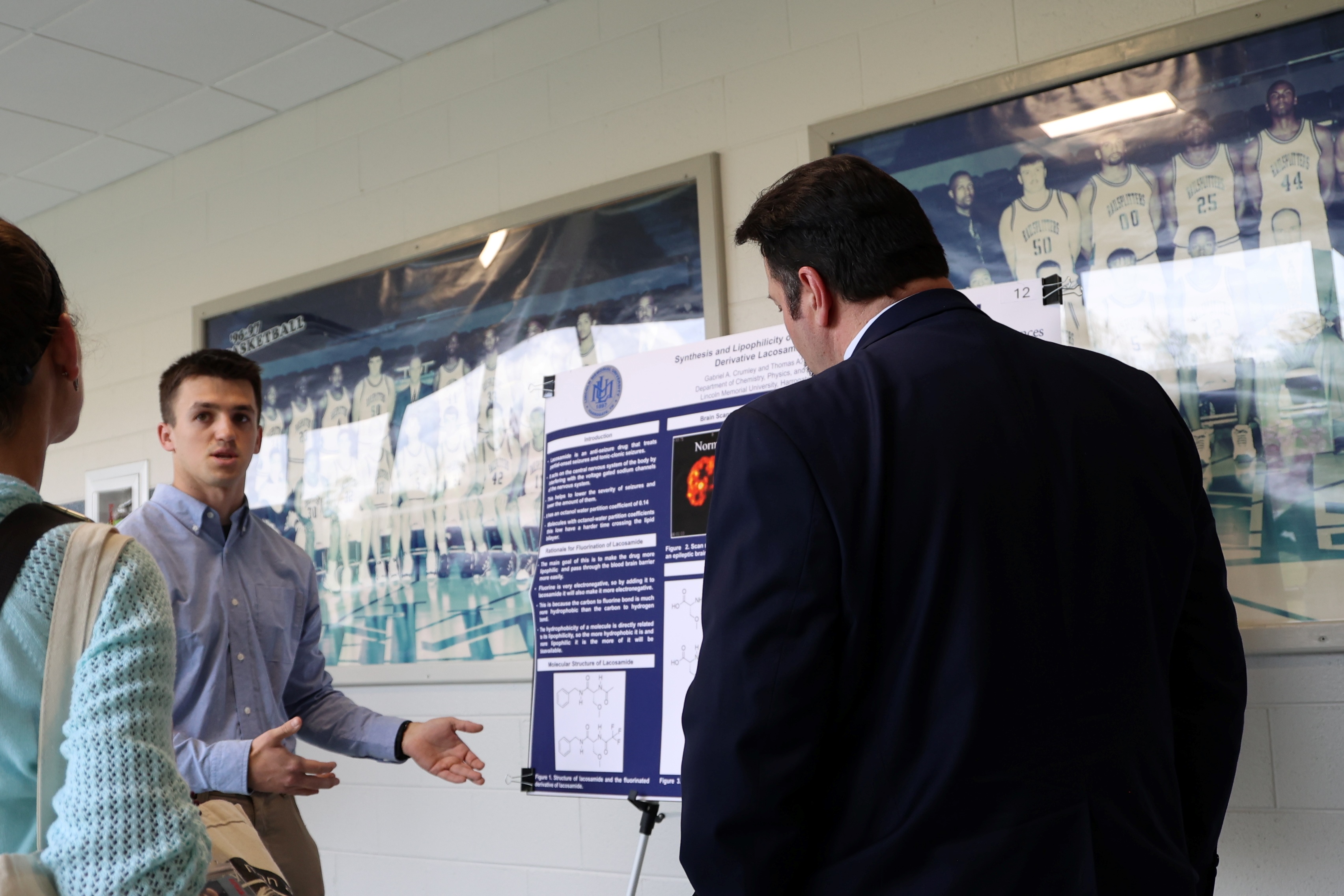
Chemistry majors conduct research with faculty. These experiences develop technical skills, critical thinking, and scientific and technical writing. Students will have to opportunity to present their research in both poster and oral presentations at a variety of local and regional conferences.
Students have the opportunity to join a variety of clubs that focus on skill development, have professional and networking opportunities, and provide various volunteer opportunities. Some clubs of interest include:
The Cumberland Mountain Research Center provides students with research and volunteer opportunities in the field.
Many of our biology graduates have gone on to become healthcare professionals, teachers and researchers. Our students go on to attend various professional and graduate programs.
Lincoln Memorial University (DeBusk College of Osteopathic Medicine, Physician's Assistant)
University of Tennessee School (Pharmacy School)
Bill Gatton College of Pharmacy
McWhorter School of Pharmacy, Samford University
University of Tennessee, Chemistry
University of Kentucky, Chemistry
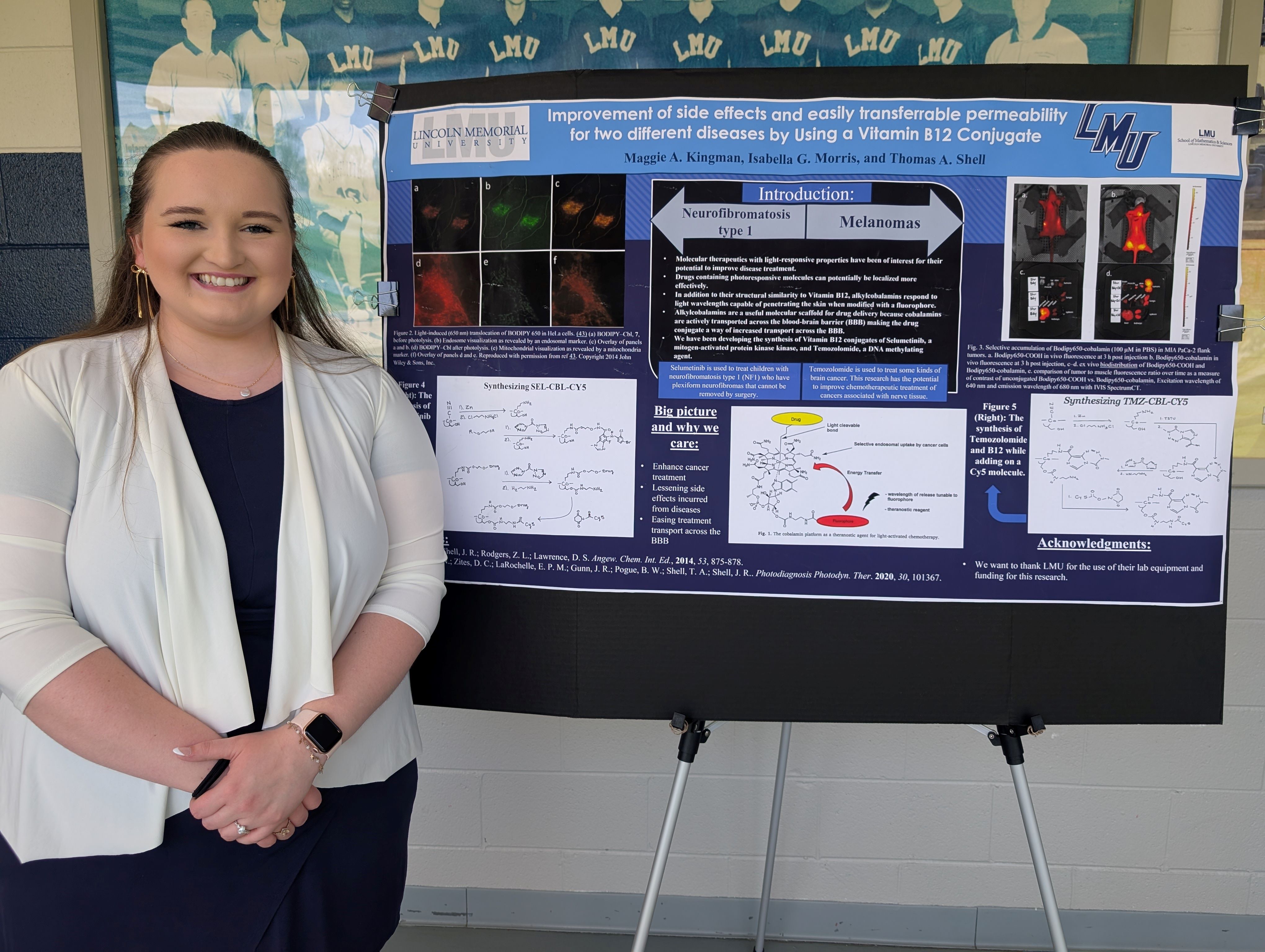
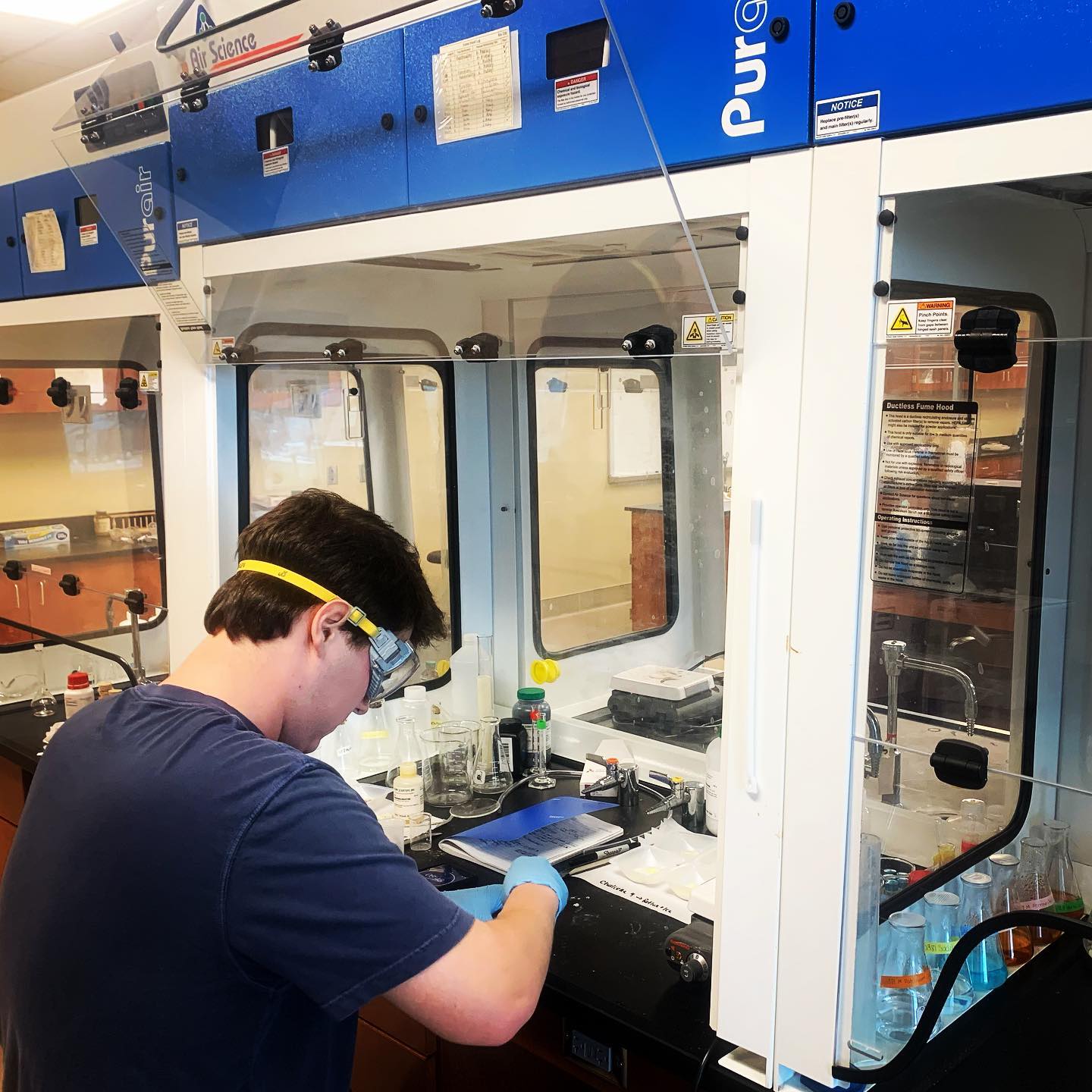
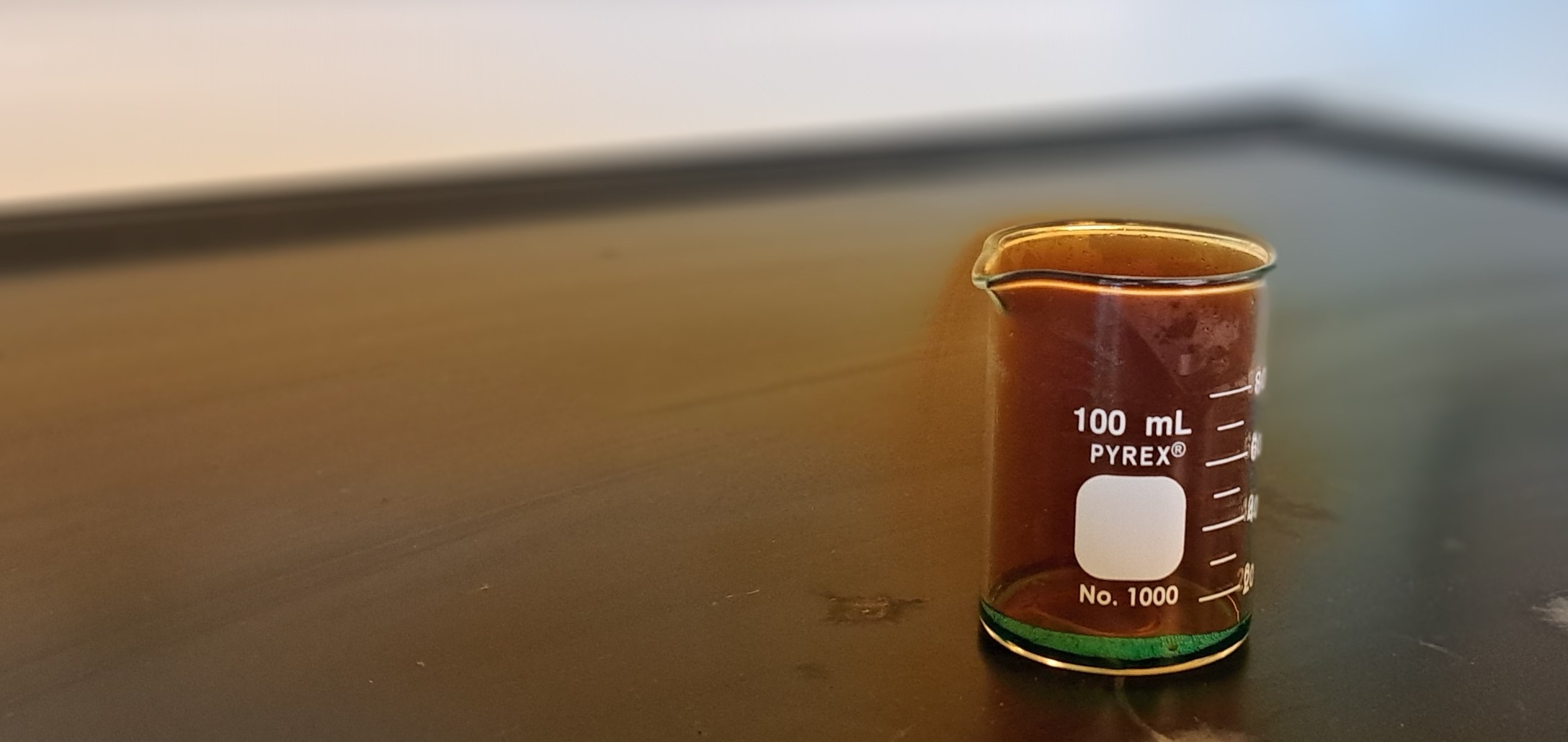
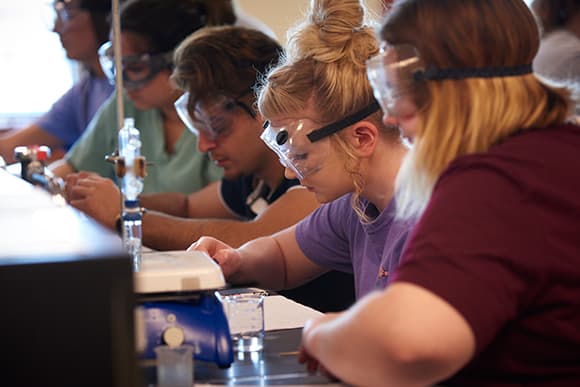
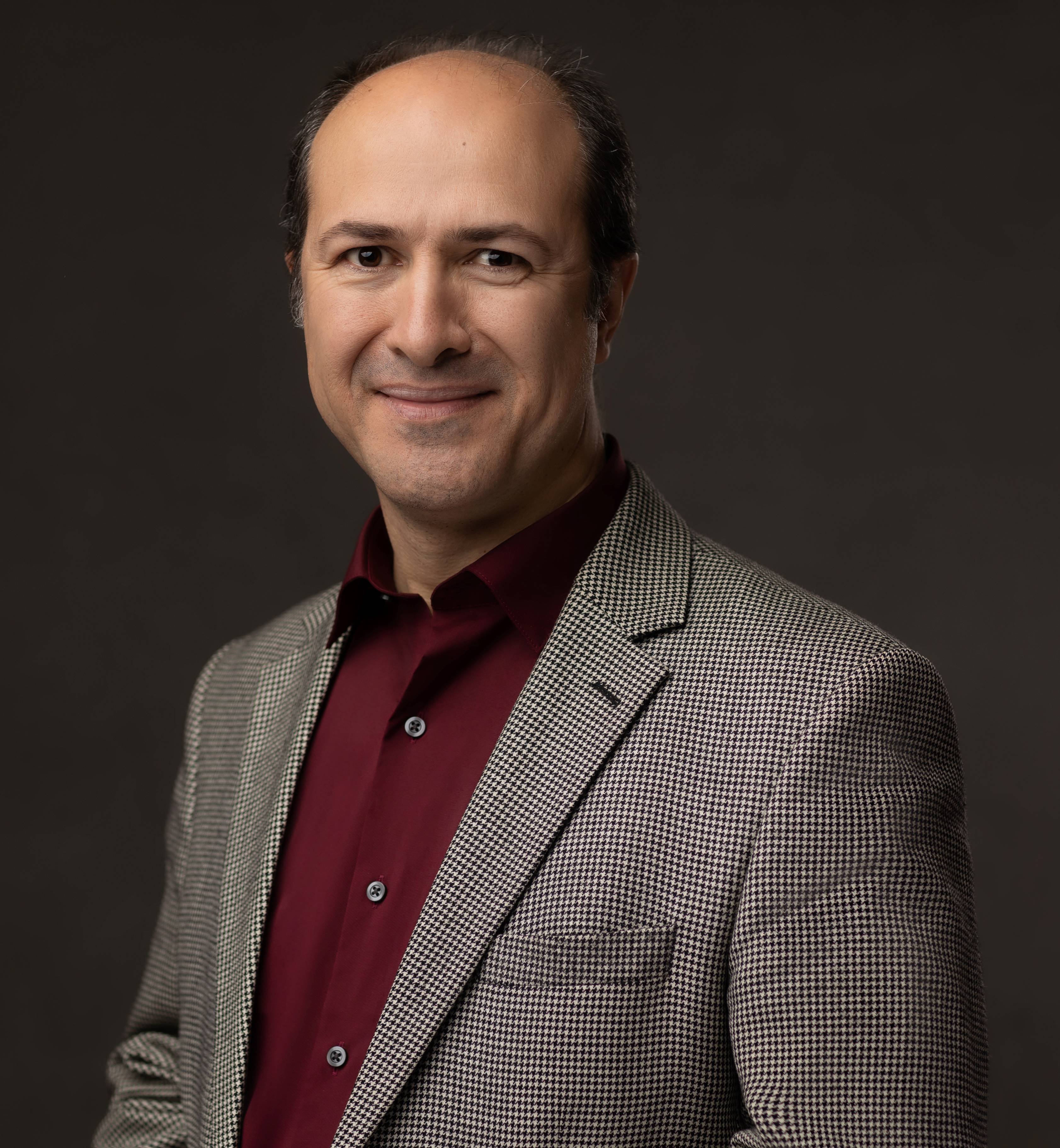
Research Interests: Electronic structure theory of molecules, machine learning in quantum chemistry.
Courses: General Chemistry I & II (CHEM 111/L & 112/L), Physical Chemistry I & II (CHEM 451/L & 452/L)

Research Interests: Colloid and surface chemistry, particularly in surfactants, polymers and nanoparticle characterization.
Courses: Intro to Chemistry (CHEM 100/L), Quantitative & Instrumental Analysis I (CHEM 331/L), Quantitative & Instrumental Analysis II (CHEM 332/L)

Research Interests: Developing methodology in synthetic organic chemistry. More specifically, on enhancing yields for the synthesis of benzoin, a precursor molecule for the preparation of several pharmaceutical drugs, and its derivatives by utilizing a simple protocol.
Courses: General Chemistry I (CHEM 111/L), Organic Chemistry I (BIOL 221/L), Organic Chemistry II (BIOL 222/L)
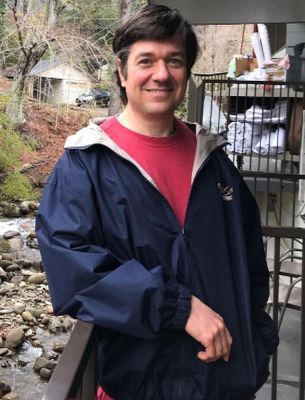
Research Interests: Organic chemistry and medicinal chemistry. Currently, researching microwave-assisted syntheses of drugs to more efficiently produce these molecules of interest while generating less waste than traditional synthetic approaches. Additionally, studying the enhancement of the physicochemical properties for biological action of fluorinated derivatives of drugs relative to their parent molecule. Lastly, the development of molecules for the targeted treatment of cancer that release active drugs when illuminated with light wavelengths that penetrate tissue. The use of light-responsive molecules allows control of the area of drug action, which has the potential to improve the treatment of cancer.
Courses: Organic Chemistry I (CHEM 221/L), Organic Chemistry II (CHEM 222/L)
For more information about Chemistry, please contact:
Dr. Thomas Shell | 423.869.6379 | Thomas.Shell@lmunet.edu